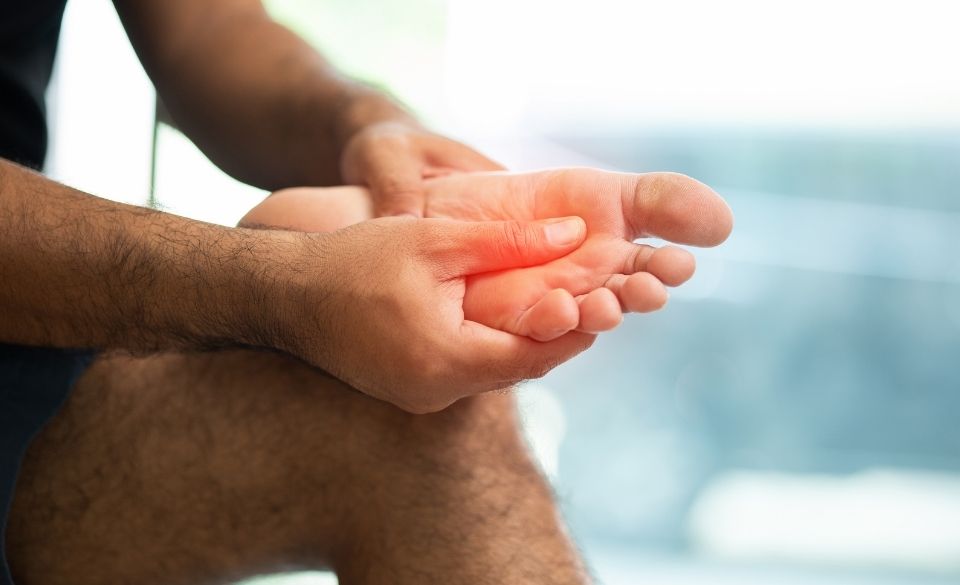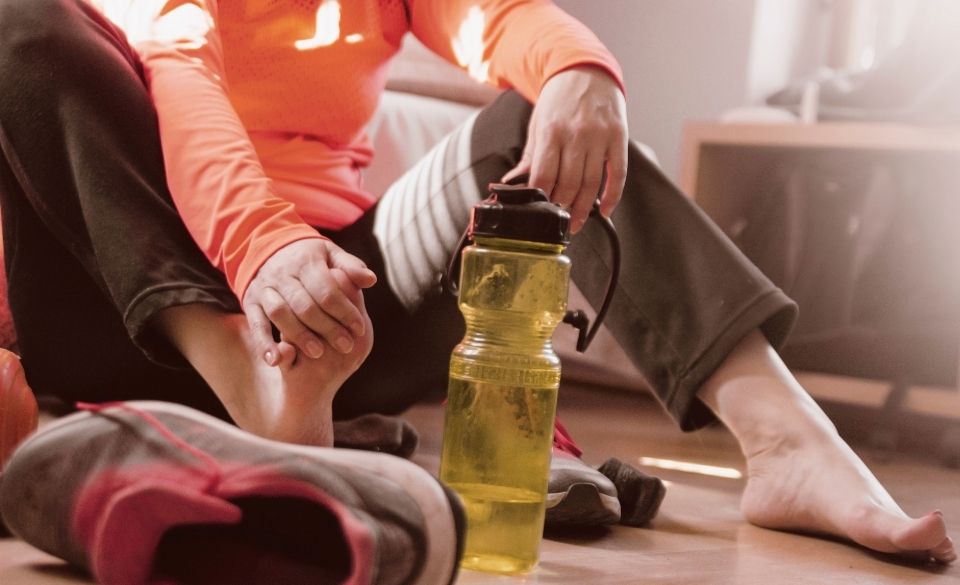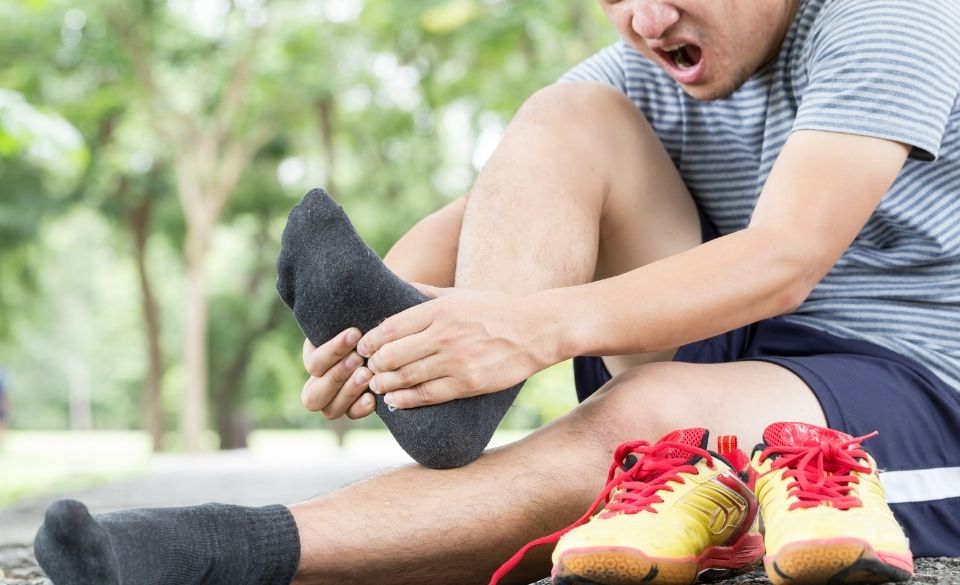
How To Treat Sore Feet After Running? The Ultimate Guide 2022
Page Contents
With many new runners hitting the pavement, more people are experiencing sore feet after running. While foot injuries are common within runners, it is not normal. Regardless of the pain or discomfort, you need to find the cause of the problem. This will prevent a more serious injury from forming.
If you are curious about how to treat sore feet after running, keep reading this article. We dive into the main causes, prevention, and how to treat them, so you can get back to doing what you love, running!

Sore Feet After Running – What Should You know?
Unfortunately, there are many causes of sore feet after running. Some of the causes include:
Wrong Shoes – Shoes that don’t fit correctly or don’t support your running gait can end up putting stress on the forefoot, midfoot, and heel. This is usually one of the causes of sore feet after a long run. Shoes that fit too small are extremely common and generally end up preventing the toes from relaxing during the landing and take-off phase.
Toe Pain – Toe pain is one of the main causes of sore feet during and after running. Since the big toe allows your foot to roll forward and push off the ground, anytime this toe or metatarsophalangeal (MTP) joint gets fatigued can cause soreness and stiffness of the feet and toes.
Heel Pain – If you experience a stabbing feeling in your heel or at the bottom of your foot post-run, you may be experiencing plantar fasciitis. This type of injury is one of the main causes of sore feet after running and is extremely common among runners of all ages.
Stress Fracture – This is the injury that scares runners the most and can often put you put for months. A stress fracture is a small crack in a bone, and generally, this type of injury is caused by overuse or overdoing the mileage. However, for some unlucky runners, it may be caused by poor running technique. Either way, if you have soreness directly after your run or first thing in the morning, you may be struggling with a stress fracture in the foot or toes.
As you can see, there are many reasons why you may be struggling with sore feet. However, the above examples are the worst-case scenarios.
Most of the time, you may be suffering from light bruising from increased mileage or the wrong fitting shoe.

What Causes Sore Feet After running
Apart from injuries to the foot, the wrong type of socks, shoes, or even your running gait can cause sore feet after running. For example, if you are a heavy heel striker, you will spend more contact with the ground, especially on the heel and midfoot. This can cause discomfort in the arch, heel, and metatarsal bone, which can cause inflammation, swelling, and just general discomfort. While the more trained runner may not suffer from this, the beginner may experience these symptoms as the feet get more accustomed to contacting the ground repetitively.
Alternatively, shoes that are worn out or lack cushioning can also cause sore feet. Running shoes are designed to reduce impact through the feet, knees, and hips. If these shoes are overly worn, you won’t get the required cushioning for the body, thus causing the feet, knee, and hips to take the load instead.
Last but not least is the running surface. Spending too much time on asphalt may cause bruising and discomfort under and around your feet. So if you are increasing your mileage or looking to, try to vary the terrain. Doing so can help decrease the overall impact through the feet, knees, hips, and toes.
Side of Foot Pain After Running
If you experienced side of foot pain after running, rather than general soreness. You may be suffering from tendinitis or inflammation of a tendon. This is often caused by overuse, an increase in mileage, or sometimes improper running shoes.
Regardless of the cause, it is important to allow adequate recovery time. Which means:
– Resting the foot for 1-3 days
– Icing the foot for 15 to 20 minutes
– Compression of the foot by socks of a bandage
– Elevating your foot when not in use
All of the above can help reduce inflammation and get you back to running quicker.
If the pain persists longer than 3 days, you may need to check your running shoes or look over your current training. Both are a large cause of outer foot pain after a run. Although for most people it should recover relatively quickly.
How To Treat Sore Feet After Running?
If you are experiencing foot pain and want to know how to treat sore feet after running, there are some basics you should know. These include:
– Icing the foot
– Elevation
– Use of anti-inflammatory medicine
– Strapping of the foot
– Compression socks
– Use of a tens machine
– Massage
The most common cause of feet soreness after a run is the repetitive action of running, thus helping to increase the blood flow, reduce inflammation, and relaxation of the muscle can help you get back to running quicker. However, it is important to know that the above recommendations are only used to treat sore feet, not an injury.
If you are experiencing pain rather than soreness, we recommend you visit a physiotherapist. They can help diagnose the injury and give you some exercises to help strengthen the area. Alternatively, they may treat your feet with ultrasound, massage, or other methods.
Regardless of the soreness or type of injury, it is wise if you experience soreness to directly ice the foot for 15-20 minutes daily for at least one week. That way by the time you visited a physiotherapist or masseuse most of the inflammation would have subsided, and they can work much easier diagnosing the injury or area of soreness.



